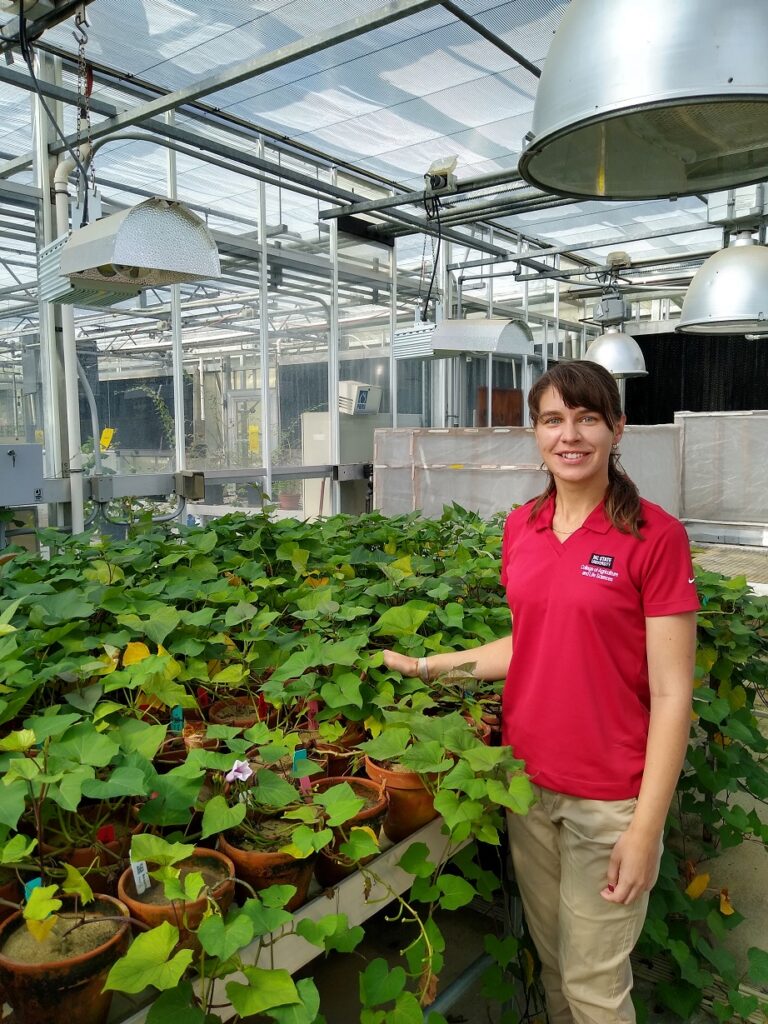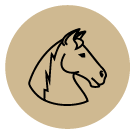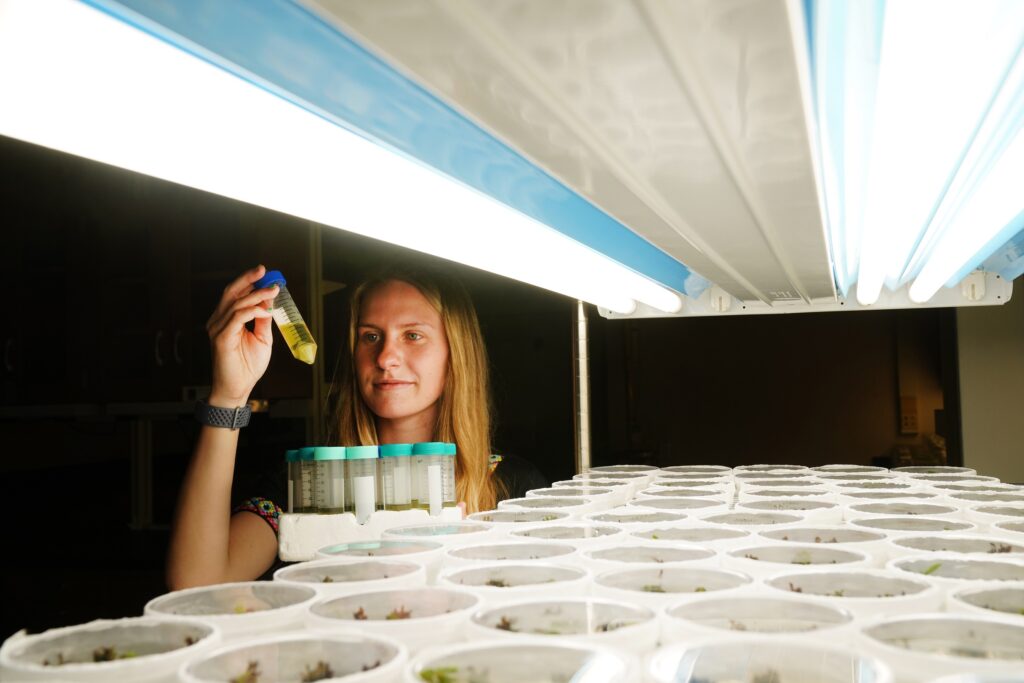then
then
ADRIENNE GORNY
BS BOTANY & PLANT PATHOLOGY
’14
ADRIENNE GORNY
BS BOTANY & PLANT PATHOLOGY
’14
By Nancy Alexander
Senior Jaden King and alumna Adrienne Gorny both grew from bewildered to confident in the lab while doing undergraduate research at Purdue. They credit the experience with showing them the value of research, training them as future scientists and enhancing their academic experience.
 Adrienne Gorny is an assistant professor of entomology and plant pathology at North Carolina State University, where she specializes in nematode epidemiology and management. She works with farmers and growers to understand the disease problems they have with their plants and conducts applied research to offer better solutions.
Adrienne Gorny is an assistant professor of entomology and plant pathology at North Carolina State University, where she specializes in nematode epidemiology and management. She works with farmers and growers to understand the disease problems they have with their plants and conducts applied research to offer better solutions.
Based on her work in the lab of Guri Johal, professor of botany and plant pathology, it’s not surprising that the Gorny lab at NC State includes undergraduate research assistants. “If I hadn’t been introduced to the concept of extension and applied research in undergraduate research, I wouldn’t be where I am today,” she says.
When she started at Purdue, Gorny didn’t know working in a lab was even an option. She overheard some friends discussing it and sought out her own research assistantship.
“When I first started, I didn’t know a whole lot,” she says. “I started out just helping all the graduate students if they needed an extra hand. Shadowing them, I learned a lot of laboratory procedures and then took on a small project of my own. Over time I learned more things, discussed a lot of ideas with them and developed into a better researcher.”
Over two-and-a-half years in Johal’s lab, Gorny helped evaluate corn varieties in the field, working with the lab team to collect data on varieties that had resulted from research in the lab and green house.
Her own undergraduate research assistants mirror the process. “The students come in with not too much experience, and we teach them our laboratory procedures and how to work in the greenhouse and the field,” she says. “It’s really cool to see their progression. I think back to when I was in their shoes, and it comes full circle.”

Mary Alice Webb,
professor emeritus of
botany and plant pathology

Pool hall
in the basement
of the Union

Farm animals,
especially horses
ADRIENNE'S
FAVORITES
ADRIENNE'S
FAVORITES

Mary Alice Webb,
professor emeritus of
botany and plant pathology

Pool hall
in the basement
of the Union

Farm animals,
especially horses
and now
and now
’22
JADEN KING
BS BOTANY & PLANT PATHOLOGY
JADEN KING
BS BOTANY & PLANT PATHOLOGY
’22
Jaden King felt so intimidated in her first few weeks in the lab of Mike Mickelbart, professor of botany and plant pathology, she called her parents and told them, “I’m not smart enough for this.”
“I had to be walked through every little thing,” she recalls. “But as time went on, I started to figure things out.”
King joined the lab through Purdue’s Molecular Agriculture Summer Institute (MASI), an undergraduate research component of the Office of Academic Programs’ College of Agriculture Transformational Experiences (CATE). MASI specifically exposes undergraduates to opportunities in plant sciences and STEM fields.
Her confidence grew as she continued research in Mickelbart’s lab during the 2021-2022 academic year. After a year there, she’s enjoying her current study on whether trees alter their leaves in response to drought.
Despite King’s description of herself as “very reserved, quiet and shy,” she presented a poster on her work at Purdue’s undergraduate research symposium. She settled her nerves by practicing extensively and taking her dad’s support to heart. “He told me, ‘Jaden, you know this better than anyone.’ I just remembered that. After a few people talked to me at the poster session, I was fine.”
The research also will lead to King co-authoring two articles that will be published in scientific journals. “It’ll definitely be cool,” she says of seeing her name in print.
King plans to apply to graduate programs in botany or a related discipline. While she remains open to future career opportunities, perhaps in environmental conservation, she hopes any position will involve research and plants. “I want to do more work outside, not necessarily in an office all day,” she says.
JADEN'S
FAVORITES

Mike Mickelbart,
professor of botany
and plant pathology

Horticulture garden
(when it’s warm)
![Untitled-1-[Recovered] sloth2](https://ag.purdue.edu/envision/wp-content/uploads/2022/06/Untitled-1-Recovered.png)
Sloth
JADEN'S
FAVORITES

Mike Mickelbart,
professor of botany
and plant pathology

Horticulture garden
(when it’s warm)
![Untitled-1-[Recovered] sloth2](https://ag.purdue.edu/envision/wp-content/uploads/2022/06/Untitled-1-Recovered.png)
Sloth
Purdue Agriculture, 615 Mitch Daniels Blvd, West Lafayette, IN 47907-2053 USA, (765) 494-8392
© 2026 The Trustees of Purdue University | An Equal Access/Equal Opportunity University | USDA non-discrimination statement | Integrity Statement | Copyright Complaints | Maintained by Agricultural Communications
Trouble with this page? Disability-related accessibility issue? Please contact us at ag-web-team@purdue.edu so we can help.

